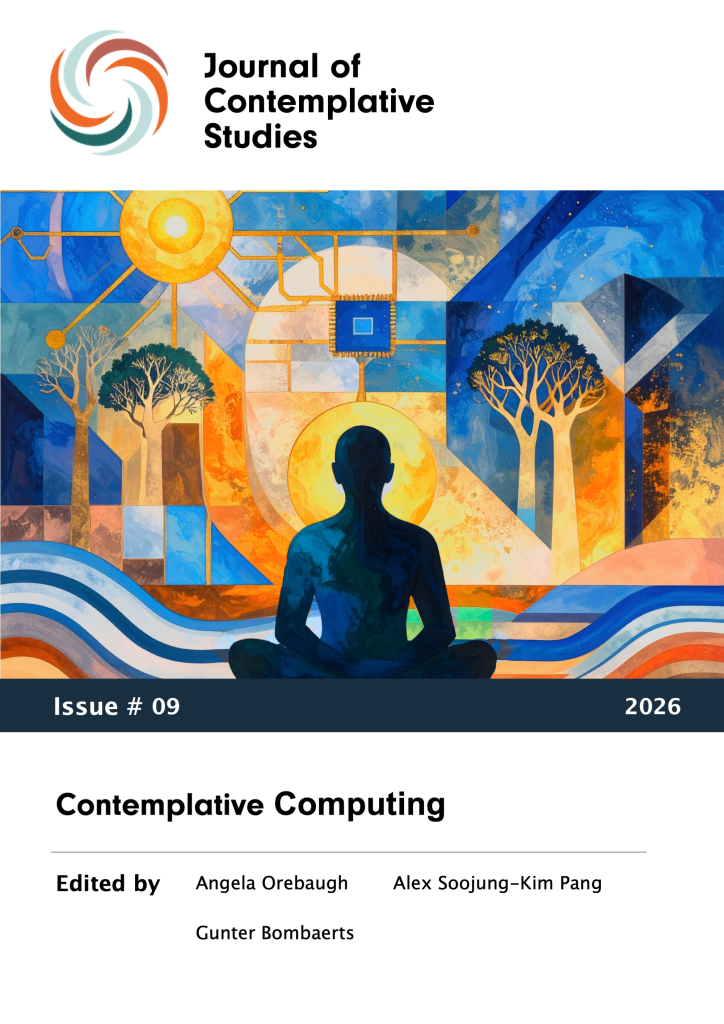The JCS Editors are delighted to announce Special Issue #09: Contemplative Computing, with guest editors Angela Orebaugh (University of Virginia), Alex Soojung-Kim Pang (Stanford University), and Gunter Bombaerts (Eindhoven University of Technology).

This Special Issue invites scholars to explore the dynamic and multifaceted relationship between contemplation and technology. In an era marked by rapid technological advancements—spanning Artificial Intelligence, digital media, Virtual Reality, and neurotechnology—many of the tools we rely on shape not only how we think but how we live, perceive, and experience. This reliance invites both excitement and concern: at once, technology risks exacerbating distraction, disembodiment, and existential alienation but it also has the potential to enhance contemplative practices by fostering deeper self-awareness, social connection, and global empathy. To explore such tensions, the issue encourages interdisciplinary dialogue on topics such as the use of technology in contemplative practices, neuroscience of meditation enhanced by digital devices, and cultural implications of techno-optimism and digital asceticism. We welcome submissions that explore these and related themes in historical and contemporary contexts, pay attention to global perspectives, and investigate particular traditions and technologies.
Authors seek to examine how contemplative traditions, long devoted to fostering presence, mindfulness, and reflection, are being transformed by technology. Can digital environments serve as meaningful spaces for contemplative experiences or do such practices require embodied, slow engagement with the analog world? Conversely, how might contemplative practices offer insights into the ethical challenges raised by surveillance, algorithmic decision-making, or the culture of constant connectivity? The guest editors are particularly interested in how contemplative practices might adapt or resist technological mediation. What role do such practices play in fostering digital wellbeing? How might such practices inform debates on digital ethics and humane use of technology? Conversely, how might technology—such as neurofeedback tools, meditation apps, or immersive Virtual Reality—enhance or inhibit contemplative experiences? Contributors are encouraged to examine these and related intersections through the lenses of Religious Studies, Philosophy, Psychology, Media Studies, Cognitive Science, and Computer Science, among other fields.
Submissions are invited for research articles (up to 15,000 words) and shorter explorations (2,000-5,000 words) that address this core theme. Creative and artistic submissions—such as visual art, video demonstrations, or interactive projects—that explore the potentials and pitfalls of contemplation in digital environments are encouraged to be posted in Contemplative Currents. The deadline for submitting an abstract of 300-500 words is December 1st, 2025. Final articles are due by June 1st, 2026. All publication decisions are at the discretion of the guest editors and editor-in-chief of the Journal of Contemplative Studies. Questions should be directed to Angela Orebaugh, angelao@virginia.edu. Abstracts are to be submitted through the author portal on the JCS Submissions page.




